In the fast-paced, ever-evolving landscape of the modern workplace, team building has emerged as a critical component of organizational success. Traditionally, team-building activities relied on in-person interactions and manual assessments to foster collaboration and improve team dynamics. However, the advent of Artificial Intelligence (AI) is revolutionizing this domain, offering innovative tools and insights that enhance the way teams are formed, managed, and developed.
Personalized Team Composition
One of the most significant impacts of AI in team building is its ability to analyze vast amounts of data to recommend optimal team compositions. AI algorithms can assess individual strengths, weaknesses, work styles, and even personality traits through various assessments and behavioral data. By doing so, they can suggest the ideal mix of team members that maximize productivity and creativity. This data-driven approach ensures that teams are not just formed based on availability or convenience but are strategically assembled to leverage complementary skills and foster a balanced working environment.
Enhanced Communication and Collaboration
AI-powered tools are revolutionizing the way teams communicate and collaborate. Natural Language Processing (NLP) algorithms can analyze communication patterns within a team to identify potential issues such as misunderstandings, tone discrepancies, or dominance by certain members. Tools like chatbots and virtual assistants facilitate smoother communication by providing real-time language translation, scheduling assistance, and information retrieval, ensuring that team members can focus on meaningful interactions rather than administrative tasks.
Predictive Analytics for Team Performance
AI can provide predictive analytics to forecast team performance and identify potential challenges before they become critical issues. By analyzing historical data and current team dynamics, AI systems can predict outcomes such as project delays, conflicts, or resource shortages. This proactive approach allows managers to intervene early, reallocate resources, or implement training programs to mitigate risks, thereby enhancing overall team efficiency and success.
Personalized Training and Development
AI’s ability to offer personalized training and development programs is a game-changer in team building. AI-driven platforms can identify individual learning needs and recommend tailored training modules that align with both personal career goals and team objectives. This ensures continuous skill development and keeps team members engaged and motivated. Moreover, AI can track progress and adjust training plans in real time, providing feedback and new challenges that keep the learning experience dynamic and relevant.
Virtual Reality (VR) and Augmented Reality (AR) Experiences
AI-powered VR and AR technologies are creating immersive team-building experiences that were previously unimaginable. These technologies allow teams to engage in virtual simulations, remote team-building exercises, and collaborative problem-solving activities, regardless of their physical location. Such experiences not only enhance collaboration but also help in building trust and camaraderie among team members who may not frequently interact in person.
Bias Reduction in Team Formation
AI has the potential to significantly reduce biases in team formation and management. By relying on objective data and algorithms to assess and recommend team compositions, AI can minimize human biases related to gender, race, or other personal characteristics. This promotes diversity and inclusion, leading to richer, more innovative teams. Moreover, AI can continuously monitor team interactions to ensure that all members have an equal voice and opportunity to contribute, further enhancing fairness and equity in the workplace.
Real-Time Feedback and Continuous Improvement
Continuous feedback is essential for the growth and development of both individuals and teams. AI systems can provide real-time feedback based on performance data, helping teams to adapt and improve continually. This instant feedback loop enables quick adjustments and fosters a culture of continuous improvement, where team members are always learning and evolving.
Conclusion
AI is undeniably transforming the world of team building, bringing in a new era of efficiency, personalization, and innovation. By leveraging AI, organizations can build more effective, cohesive, and dynamic teams that are well-equipped to tackle the challenges of the modern business environment. As AI technology continues to evolve, its impact on team building will only grow, paving the way for more intelligent and adaptive organizational strategies. Embracing these AI-driven advancements is not just a competitive advantage but a necessity for any organization aiming to thrive in the future.
